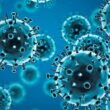After hundreds of women have come forth complaining of changes to their menstrual cycle post Covid-19 vaccine, the NIH has announced a $1.67 million study into vaccines and reproductive health.
In April 2021, The Lily published the first story about 45-year-old Shana Clemson, who noticed unusual period symptoms after her first Moderna shot. She got her period a week early, with it being much heavier and intense than normal. “I’ve not had bleeding like that probably since before I had kids,” Clauson said, adding that dizziness and fatigue continued for two days after her period ended.”
Clauson was not alone in noticing something was off about her cycle. Women were flocking to Facebook groups and Reddit threads dedicated to discussing their symptoms. The lack of answers led some women to call out sexism in the medical field. Clauson said, “Is this not being discussed, or is it even being looked at or researched because it’s a ‘woman’s issue?’ I hope that if this is going to be a side effect for women, that it’s being addressed, and women know this could happen.”
The NIH officially announced on August 30 that they would be researching the side effects and changes in menstruation. Their goal is to study half a million people, including trans and non-binary individuals, biologically female. The study will also include teenagers. The study is commissioned by the NIH’s National Institute of Child Health and Human Development (NICHD) and the Office of Research on Women’s Health. The researchers who’ve been tasked with working on the study are Boston University, Harvard Medical School, Johns Hopkins University, Michigan State University, and Oregon Health and Science University.
The year-long study will start by monitoring unvaccinated women and observing changes after each dose. Some of the study groups will exclude women on birth control or on gender-affirming hormones, as those drugs may affect menstrual cycles. NICHD Director Diana Bianchi said, “Our goal is to provide menstruating people with information, mainly as to what to expect, because I think that was the biggest issue: Nobody expected it to affect the menstrual system, because the information wasn’t being collected in the early vaccine studies.”
The NIH is pulling this study together at record speed, as it usually takes several years to approve. As to the speed of the study, Bianchi said, “We were worried this was contributing to vaccine hesitancy in reproductive-age women.”
Follow Sarah Abrams: Instagram
Follow Tatum Report: Gettr Instagram Twitter Facebook
- Gender Clinic in UK Faces Class Action Lawsuit - August 12, 2022
- North Dakota School Board Will No Longer Say Pledge of Allegiance - August 12, 2022
- New Dating App Will Cater to Conservatives - August 11, 2022






